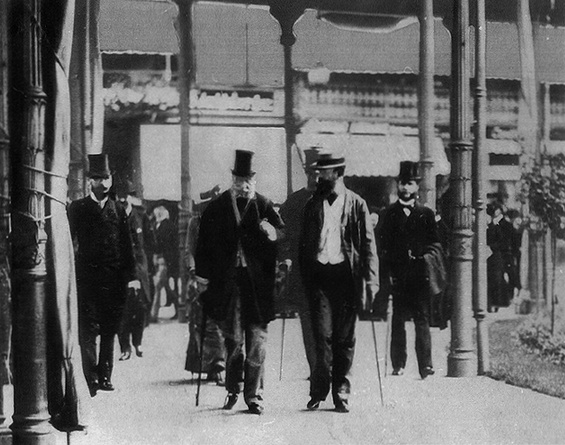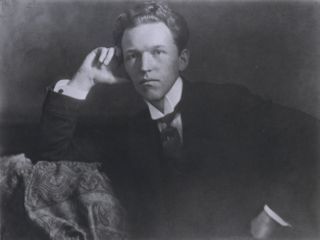|
Eulenburg (surname)
Eulenburg is a German surname. Notable people with the surname include: * Albert Eulenburg (1840–1917), German neurologist *Botho zu Eulenburg (1831–1912), Prussian statesman * August zu Eulenburg (1838–1921), Marshal of the Royal Court of Prussia *Friedrich Albrecht zu Eulenburg (1815–1881), Prussian diplomat and politician * Hedda Eulenberg (1876–1960), German translator * Herbert Eulenberg (1876–1949), German writer * Botho Sigwart zu Eulenburg (1884–1915), German composer * Friedrich Wend zu Eulenburg (1881–1963), German prince and landowner *Philipp, Prince of Eulenburg (1847–1921), German diplomat and friend of Wilhelm II, German Emperor Wilhelm II (Friedrich Wilhelm Viktor Albert; 27 January 18594 June 1941) was the last German Emperor (german: Kaiser) and King of Prussia, reigning from 15 June 1888 until his abdication on 9 November 1918. Despite strengthening the German Emp ... {{surname, Eulenburg German-languag ... [...More Info...] [...Related Items...] OR: [Wikipedia] [Google] [Baidu] |
Albert Eulenburg
Albert Eulenburg (10 August 1840 – 3 July 1917) was a German neurologist born in Berlin. Education Born into a Jewish family, he studied medicine at the Universities of Berlin, Bern and Zurich, earning his doctorate in 1861. Among his instructors were Johannes Peter Müller (1801–1858), Ludwig Traube (1818–1876) and Albrecht von Graefe (1828–1870). Later he became a professor of pharmacology at the University of Greifswald, and in 1882, a professor of neurology in Berlin. Career Eulenburg is remembered for his written works. His most ambitious work being the multi-volume ''Real-Encyclopädie der gesammten Heilkunde'', which was published in four editions between 1880 and 1914. Later in his career he became interested in the field of sexology, and was co-editor of the journal ''Zeitschrift für Sexualwissenschaft''. In 1902 Eulenburg penned a work on algolagnia, titled ''Sadismus und Masochismus'' (Sadism and Masochism). Publications Other principal writings ... [...More Info...] [...Related Items...] OR: [Wikipedia] [Google] [Baidu] |
Botho Zu Eulenburg
Botho Wendt August Graf zu Eulenburg (31 July 1831 – 5 February 1912) was a Prussian statesman. Early life and career Eulenburg was born in Wicken near Bartenstein at to Botho Heinrich zu Eulenburg (1804–1879) and Therese née von Dönhoff (1806–1882).Biography at ... [...More Info...] [...Related Items...] OR: [Wikipedia] [Google] [Baidu] |
August Zu Eulenburg
August Ludwig Traugott Botho Graf zu Eulenburg (22 October 1838 – 16 June 1921) was an officer in the Prussian, and later German armies, and official in the Prussian royal court. He was the younger brother of Count Botho zu Eulenburg, who served as Minister-President of Prussia from 1892 to 1894, and a second cousin of Philipp, Prince of Eulenburg, the close friend of Kaiser Wilhelm II. Biography Born into the Upper Saxon noble family of Eulenburg, August joined the army on 1 November 1856 as a grenadier in the 1st Foot Guard Regiment after his graduation from the Marienwerder Gymnasium. He was promoted to second lieutenant two years later on 13 April 1858, and between 1860 to 1862 he participated in the trade mission in East Asia as an attaché under his kinsman Friedrich Albrecht zu Eulenburg. Upon his return to Prussia in 1865, Eulenburg pursued a career in the royal court; he was made a personal adjutant to the crown prince (the future Emperor Frederick III), before ... [...More Info...] [...Related Items...] OR: [Wikipedia] [Google] [Baidu] |
Friedrich Albrecht Zu Eulenburg
Count Friedrich Albrecht zu Eulenburg (29 June 1815 – 2 June 1881) was a Kingdom of Prussia, Prussian diplomat and politician. He led the Eulenburg Expedition and secured the Prusso-Japanese Treaty of 24 January 1861, which was similar to other unequal treaties that European powers held Eastern Countries to. By Christian W. Spang, Rolf-Harald. Wippich, p. 1 Biography Eulenburg was born in Königsberg. He was the oldest surviving child of Friedrich Leopold Graf zu Eulenburg (Prosna, Warmian-Masurian Voivodeship, Prassen, 26 December 1787 - Königs ...[...More Info...] [...Related Items...] OR: [Wikipedia] [Google] [Baidu] |
Hedda Eulenberg
Hedda Eulenberg (6 March 1876 – 13 September 1960) was a German translator and writer Biography Eulenberg was born in Meiderich (today part of Duisburg) in Prussian Rhine Province, the daughter of Wilhelm Maase, a music director. She passed her school-leaving exam ('' Abitur'') in 1893 at the ''Luisenschule'' in Düsseldorf. In 1897 she married the author Arthur Moeller van den Bruck in Berlin, whom she had known since her days at school in Düsseldorf. 1901 she met the writer Herbert Eulenberg in Berlin at the premiere of his play ''Muenchhausen''. The same year Arthur Moeller van den Bruck fled to France for political and economical reasons. In 1901 Max Bruns published her ten volumes of the translations of Edgar Allan Poe's works, followed by the translation of Jeanne Marni's novel ''La Femme de Silva'' (''Die Gattin'') issued by Julius Bard the next year. In 1903 Reclam published her German translation of '' Germinal'' by Émile Zola. In 1904 Hedda divorced from Arthu ... [...More Info...] [...Related Items...] OR: [Wikipedia] [Google] [Baidu] |
Herbert Eulenberg
Max Herbert Eulenberg (1876–1949), was a German poet and author born in Cologne-Mülheim, Germany. He was married from 1904 to Hedda Eulenberg. Biography 1920s Eulenberg was the publisher of many books, for which he wrote the introductions. His speech on Schiller, which he wrote in 1909, generated heated debates. In 1911 he published Letter of a Father of our Times in the magazine PAN for which he was accused, tried and later acquitted of the charges of circulating obscene writing. In the 1920s, he was one of the most performed playwrights on German stages. His essays on various subjects and topics on literature, theatre, music, and fine arts were published in numerous newspapers and magazines throughout Germany and Austria. He was awarded prizes and honours for his literary work such as “Der Preis des Frauenbundes zur Ehrung rheinischer Dichter”, the ”Volks-Schiller-Preis”, the “Preis of the Peter Wilhelm Müller Trust”, or the ”Wiener Volksschillerpreis� ... [...More Info...] [...Related Items...] OR: [Wikipedia] [Google] [Baidu] |
Botho Sigwart Zu Eulenburg
Sigwart Botho Philipp August zu Eulenburg, Count of Eulenburg (10 January 1884, in Munich – 2 June 1915, in Jasło) was the second son of Philipp, Prince of Eulenburg (1847–1921) and his wife Augusta, Princess of Eulenburg, Augusta, born Countess of Sandels (1853–1941) and a German late romantic composer who fell in the First World War. Childhood and studies The family seat was the castle and estate of Liebenberg in the region of Brandenburg, north of Berlin. Art and music played a central role in family affairs. The Prince zu Eulenburg-Hertefeld himself played and composed music and wrote poetry and romances (the famous Rosenlieder and Scandinavian Cantos) and was a friend and confidant of Wilhelm II, German Emperor, Kaiser Wilhelm II, who regularly visited Liebenberg. He supported his gifted son and daughter Victoria, familiarly called Tora, who was a pianist, and they grew up in a musical environment at the castle of Liebenberg Sigwart showed his musical talent at a y ... [...More Info...] [...Related Items...] OR: [Wikipedia] [Google] [Baidu] |
Friedrich Wend Zu Eulenburg
Friedrich-Wend, Count of Eulenburg and Hertefeld, known as Prince of Eulenburg and Hertefeld, Count of Sandels (19 September 1881, in Starnberg – 1 August 1963, at Hertefeld Castle in Weeze), was a German aristocratic farmer and estate owner of Liebenberg and Häsen in (Brandenburg) as well as Hertefeld and the Castle of Kolk ( Niederrhein). Origin and education Friedrich-Wend was the oldest surviving son of Philipp, Prince of Eulenburg (1847–1921) and his wife Augusta, born Countess Sandels (1853–1941), daughter of Samuel, the last Count Sandels, and Augusta Tersmeden. On account of his father's diplomatic duties he spent his childhood and school days in Starnberg, Oldenburg, Stuttgart and Vienna. On attaining his Abitur, Friedrich-Wend joined the 1st Guards Infantry Division in 1902 and a year later the Kriegsschule in Engers. In 1906 he withdrew from the military with the rank of Lieutenant of Reserves. During his time in Vienna he had met his later wife, the Aust ... [...More Info...] [...Related Items...] OR: [Wikipedia] [Google] [Baidu] |
Philipp, Prince Of Eulenburg
Philipp, Prince of Eulenburg and Hertefeld, Count of Sandels (german: Philipp Friedrich Karl Alexander Botho Fürst zu Eulenburg und Hertefeld Graf von Sandels; 12 February 1847 – 17 September 1921) was a diplomat and composer of Imperial Germany who achieved considerable influence as the closest friend of Wilhelm II. He was the central member of the so-called Liebenberg Circle, a group of artistically minded German aristocrats within Wilhelm's entourage. Eulenburg played an important role in the rise of Bernhard von Bülow, but fell from power in 1907 due to the Harden–Eulenburg affair when he was accused of homosexuality. Early life Eulenburg was born at Königsberg, Province of Prussia, the eldest son of Philipp Konrad, Count zu Eulenburg (Königsberg, 24 April 1820 – Berlin, 5 March 1889) and his wife, Baroness Alexandrine von Rothkirch und Panthen ( Glogau, 20 June 1824 – Meran, 11 April 1902).Röhl, John ''The Kaiser and His Court'', Cambridge: Cambridge University ... [...More Info...] [...Related Items...] OR: [Wikipedia] [Google] [Baidu] |
Wilhelm II, German Emperor
Wilhelm II (Friedrich Wilhelm Viktor Albert; 27 January 18594 June 1941) was the last German Emperor (german: Kaiser) and King of Prussia, reigning from 15 June 1888 until his abdication on 9 November 1918. Despite strengthening the German Empire's position as a great power by building a powerful navy, his tactless public statements and erratic foreign policy greatly antagonized the international community and are considered by many to be one of the underlying causes of World War I. When the German war effort collapsed after a series of crushing defeats on the Western Front in 1918, he was forced to abdicate, thereby marking the end of the German Empire and the House of Hohenzollern's 300-year reign in Prussia and 500-year reign in Brandenburg. Wilhelm II was the son of Prince Frederick William of Prussia and Victoria, German Empress Consort. His father was the son of Wilhelm I, German Emperor, and his mother was the eldest daughter of Queen Victoria of the United Kingdom and ... [...More Info...] [...Related Items...] OR: [Wikipedia] [Google] [Baidu] |




